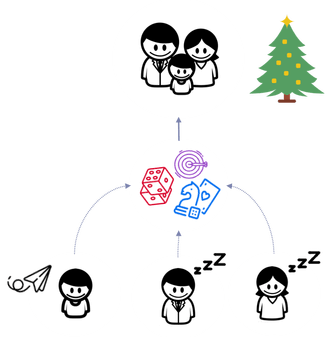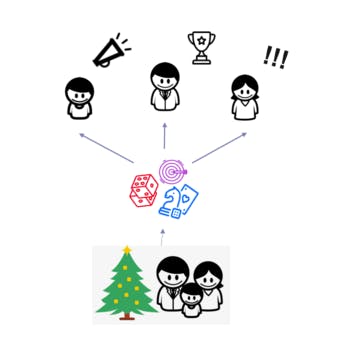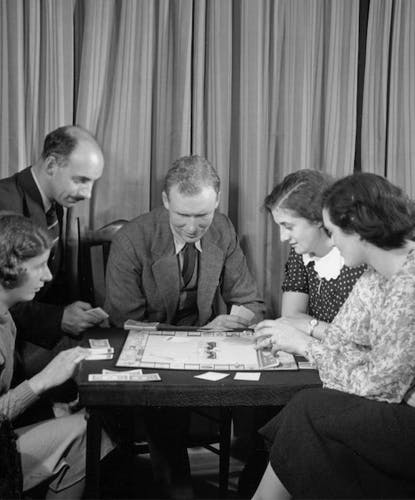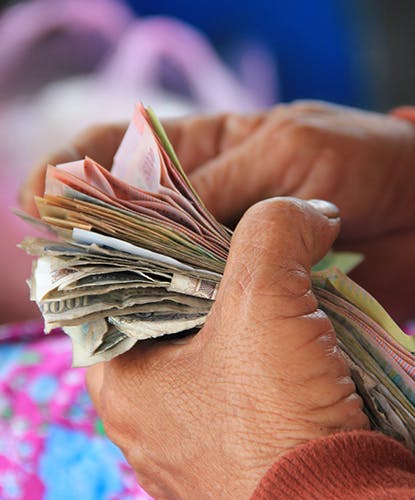Insight #1
Playing: a regulator between the family and its members
Christmas is a fragile equilibrium between the family and the individuals that form it. Fortunately paying offers a common ground where competing expectations disappear! But not everything is that perfect: playing has its own areas of shadow which can sometimes spoil the party.

1. At Christmas, playing is at the service of the family
Because it enables to avoid all types of dysfunctions: without a game, we get bored, there are embarrassing silences and the evening drags on; then in such moments “there is no good chemistry anymore” explains Camille. Playing, on the contrary, helps the family to reunite: individuals otherwise separated find a pretext to exchange. Once launched, game stages distribute the attention, so that no monologue privatizes it.

2. But playing is also at the service of individuals
Thanks to it, one can say and do things that Christmas prohibits. Because it is just “to play the game”, one can have a less ceremonial and more personal attitude; being a competitor for Nicolas; being teasy for Kilian. Then, because it isn’t “real”, one can permit itself to say things that would normally be censored; and, like Kilian, explain to her mother-in-law that she is stupid, through the game of course!

3. Playing is a regulator between individuals and family
The first ones can express themselves and consequently escape the sometimes rigid family meeting protocol. Inside the family, individuals linked by a single common denominator (kinship) can re-connect themselves for the span of a game; then the family renews its alliance and there lies precisely the whole point of Christmas. In that respect, the game is a regulator: it ensures the effective functioning of sometimes contradictory expectations between individuals and family.

4. But this regulator is weak
The fact that games must not be taken literally at all can sometimes be misinterpreted and have real consequences in real life. It is that players got caught up in the game: they took literally what is mostly figurative, and at face value what is only false. In short, they forgot they were playing. Playing has limits but it is also the players’ mission to detect them.
L'étude

#GérerSonArgent
Family games at Christmas: what are we playing?
Why is playing games a so widespread and such an essential part of Christmas? To dissect what can seem obvious at first glance, we wanted to understand what role games play within the Christmas family ritual. Beyond the common thought that playing is something insignificant and childish, we took playing very seriously, and we dived into what playing is really about, what is at stake, the behaviors and attitudes playing generates. If the game is everything but “frivolous”, how does it position itself within the Christmas ritual?
Découvrir l'étude


